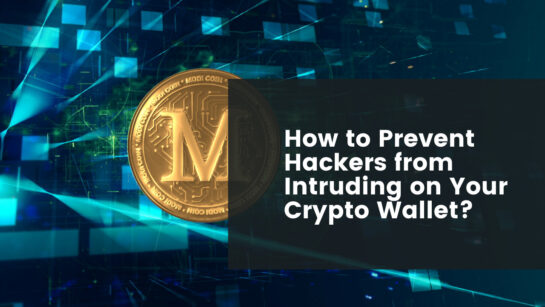The cryptocurrency industry has been growing at a fast pace. The rate of exchanges and interests is growing high, but so is the pedantic detail associated with hacking. Any and all data present on the internet is vulnerable to being hacked.
The crypto-hubs like UAE are also vulnerable to these attacks. It’s like if you are planning to sell USDT in Dubai then you need to ensure your investment’s safety. Since cryptocurrency is decentralized in nature, virtual assets are impossible to be traced. This creates a bigger menace for investors who store huge amounts online in their crypto wallets. So how exactly do you protect yourself? Read on to figure that out!
How to prevent hacking of wallets
If you have been storing and trading cryptocurrencies, you know about crypto wallets. These are like a fiat bank system but online and exclusive for digital assets. These wallets are available In two major forms: hot wallets and cold wallets. Each with a varied function and form of security.
Non-custodial wallets
Among the numerous options and types of hot and cold wallets, Non-Custodial wallets exist. If you have a high amount of cryptocurrency holding, it is ideal for you. Avoiding third-party access, non-custodial wallets give you instant access to wallet keys. These keys play a pivotal role in your security.
You should keep in mind that losing these keys will also lead to the loss of your funds. To avoid losing significant funds, remember to have a backup strategy. You can either write down your key on paper or use a hardware wallet. These provide an added layer of protection against phishing sites, cyber-attacks and malware.
Some hardware wallets also have an added feature of multi-signature (multi-sig). These keys can be distributed to stakeholders, thereby adding to the safety and security of these wallets.
Hardware Devices
Usually, when investors buy a cryptocurrency, they store it on the exchange that they have brought it from. These digital exchanges ensure users of security, but truth be told? These are not immune to hacks. So, what you can do to ensure security is to protect your wallet.
Amongst the two main types of wallets, namely Cold and Hot storage, the popular one is the hardware device ( a form of cold wallet). These physical wallets have the appearance of USB drives and serve as a forum to store tokens and coins. Every hardware wallet has a private key associated with it. Thes private keys are like passwords that decrypt your wallet and give access to coins and tokens. These hardware wallets are exceedingly safe against digital thieves.
Beware of exchanges
The most common mistake that users make is holding their cryptocurrency on the same exchange platform they have brought it from. Exchanges do provide protection and security, but they are not completely immune. The majority of exchanges are based on hot wallets. A hot wallet is connected directly to the internet, adding vulnerability and low security. Some reputable exchanges have now, however, added the option of multi-signature. The feature is one of a kind and gives you an added layer of security.
Another rookie mistake is opting for exchanges that are not regulated. When you decide to opt to store your digital asset online, make sure that the exchange you are opting for is regulated. This is important because unregulated exchanges do not hold the same standard. So you can guess when regulated exchanges have the potential risk of being hacked, what situation do unregulated exchanges face.
Use two-factor authentication
Due to easy access, many users opt for regulated exchanges. Since hot wallets have an easier interface, you do not have to connect to the internet separately, as is the case with cold wallets. So, if you opt for a regulated exchange, then go for two-factor authentication. This should be in addition to SMS 2FA as it can be undermined rapidly. In addition, some hardware devices use cryptographically hashed keys to verify and sync online accounts. So pick your exchange wisely.
Avoid recycling emails and passwords
The best way to prevent hacking of your crypto wallet is to opt for unique emails and passwords. One of the most typical mistakes that you can make is using the same email and password for your crypto holding accounts as your socials. This provides hackers with an easy to access avenue and increases theft chances.
In conclusion,
There are two major wallets to store your cryptocurrencies, receive them and exchange them. These wallets have various subtypes but are differentiated based on security. Cold wallets may acquire longer functions while transferring cryptocurrency, but it is the safest option you could opt for. Another option is a multi-signature wallet that some high profile regulated exchanges offer. So study your choices in detail and choose wisely. Happy cryptoing!

